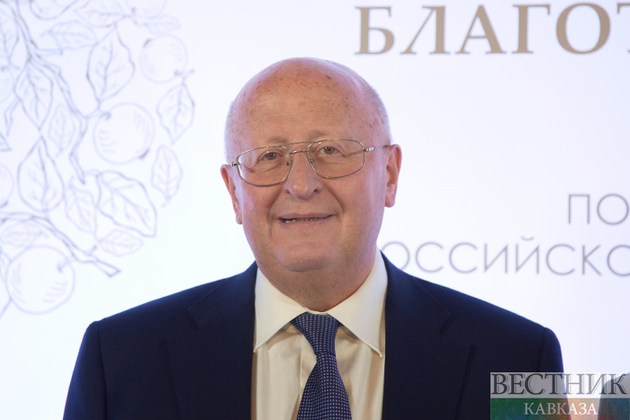Alexander Gintsburg, director of the Russian Health Ministry's Gamaleya Epidemiology and Microbiology Research Institute and a member of the Russian Academy of Sciences, said he doubts that the Omicron variant of the novel coronavirus infection might have been created artificially by humans, as its mutations may have developed naturally in the region where it was discovered as well.
Gintsburg pointed out that southern Africa, where the Omicron strain was detected first, is inhabited by numerous individuals with immunodeficiency, in whose system the coronavirus can exist and keep mutating for a very long time.
"On the other hand, they have a subpopulation immunized by various agents of infectious diseases, and I believe they might have been infected very often with coronaviruses of various genotypes. Against this backdrop, when a virus exists in the same system for very long, it accumulates a huge number of mutations," Gintsburg said.
According to another tenable theory, the novel coronavirus might have been transmitted from humans to wild animals, mutated in them, and then transmitted to humans again, as "coronaviruses on the whole develop, proliferate, exist, and mutate in animals perfectly well," Interfax cited him as saying.
"And nobody knows how many times this coronavirus was transmitted from one wild animal to another in a population. Moreover, this might not require any immunodeficiency, because there is natural resistance due to the fact that animals have different receptors for the virus [to bind] and so on," he said.
"When close contacts are present between the animal and human world, which is typical for Africa, the transmission of a mutated virus to humans may lead to such interesting effects worrying for the human population," he said.
"Therefore, it seems to me that no medicines and no human influence, like handmade anthropogenic construction and intervention, are required to explain all of these phenomena," Gintsburg said.
Variant B.1.1.529, which has been dubbed Omicron, was discovered in the South African Republic, Botswana, and Israel at the end of November, and now it has been identified in numerous countries of Europe and North America. Russia has officially diagnosed 25 people with the Omicron variant of coronavirus in Moscow, the Moscow region, St. Petersburg, and Rostov-on-Don.






